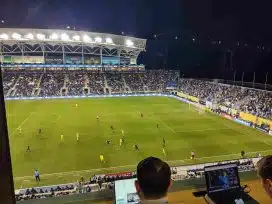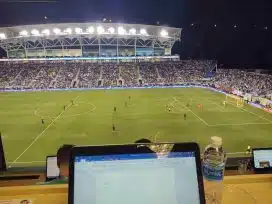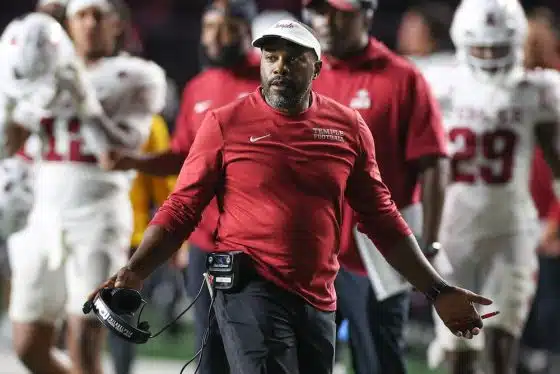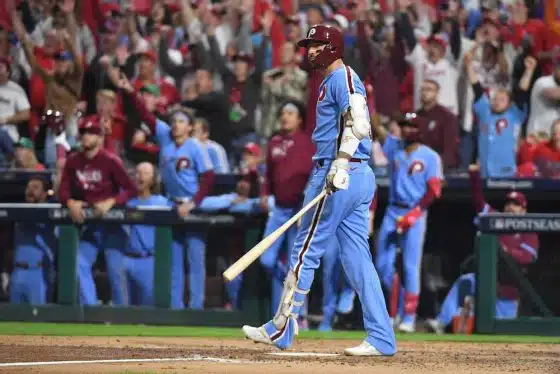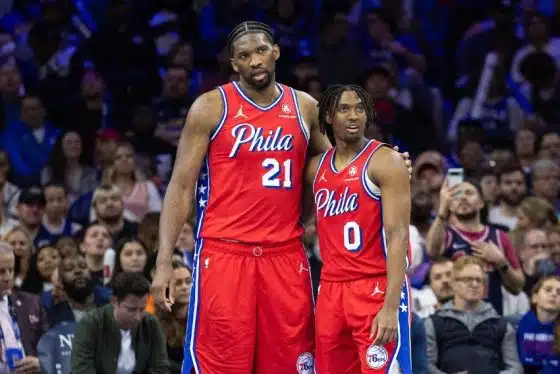Eagles
Ten Years of Labor Peace: NFL Collective Bargaining Agreement Passes Player Vote
By Connor Donald, Sports Talk Philly Contributing Writer
Just last week, Eagles safety Malcolm Jenkins was selected to the NFLPA board.
This week, the NFLPA has agreed to a new deal.
In a final vote of 1019 to 959, the NFL players have voted in favor of the new proposed Collective Bargaining Agreement Sunday. The final votes of the players were to be submitted by 11:59 PM on Saturday night and required a majority for players’ approval to pass. It did with the final tally at 51.5%.
The new CBA is set to last ten years, through the 2030 NFL season, and will ensure no work stoppage after the 2020 season. The new CBA initially passed a majority owners vote, plus a 17-14 NFL Players Association representatives vote and now ultimately the 51.5% to 48.5% players vote.
Beyond the ten years of stoppage-free NFL, lets take a brief look at some of the key features of the new CBA agreement and how it will affect players, owners and fans.
Fans:
There are two key features of the CBA that will impact the fans and debates rage on about whether or not it will have a positive impact for the game.
First and foremost, the owners will have the option to expand the regular season from 16 games to 17 games starting as early as 2021. When the decision is made to expand the regular season, the preseason will be shortened to three games instead of four. Beyond that, there are very few details about how they plan to balance the home and away games, but we do know that there will be no additional bye week.
Secondly, the playoff format will be changing starting with the 2020 campaign. There will be an expansion from six teams to seven teams. Only one team per conference will receive a first-round bye, shifting from the two best teams per conference getting a first-round bye in past seasons.
Players:
Beyond putting themselves through an additional week of football each season, there are a number of other changes impacting players for that additional week of play.
What is likely most important to the players is a larger cut of the revenue share versus previous CBA’s. The players in 2020 will receive 47% of league revenue in accordance with the current expiring CBA. Starting in the first year of the new CBA, 2021, players will receive 48% of league revenue. However, once they move to 17 games there is a “media kicker” in the agreement which simply means that should the size of the television contracts increase, players receive a greater share of revenues. If TV revenues increase by 60-119%, then the share will increase to 48.5%, if the TV revenues surpass 120%+, player shares will increase to 48.8%.
The players also will have a higher minimum salary, the increase will be 20% or about $100,000. ESPN reports that approximately 60% of NFL players work on a minimum salary deal. Any player with less then one year of experience will go from $510,000 to $610,000. That figure will incrementally rise through the duration of the deal to $1.065 million by 2030. Players with one to seven years of experience go from $585,000 to $675,000 with similar exponential growth to $1.185 million by 2030. Finally, players with seven plus or more of experience will raise from $810,000 at the minimum to $1.05 million, reaching a total of $1.48 million by 2030.
The new agreement also increases the spending floor of each team, which will make teams spend more on player salaries. This could also be due to the fact that the game-day active rosters will grow from 46 to 48; one of these additional roster spots must be an offensive linemen. The practice squad will grow from 10 to 12 in 2020 and 2021 and to 14 in 2022. As with other salaries, the practice squad salaries will increase by $3,500 to $11,500 per week by 2022. They are providing further opportunity for practice squad players as two per week may be elevated to the team’s roster and they can be sent back down two times without another team having the opportunity to claim them.
A couple final player friendly elements include: players will be paid across 34 weeks instead of 17 (36 weeks once the NFL regular season grows to 17 games), the NFL eliminating suspensions for positive marijuana tests and increasing the threshold for what constitutes a positive test. There are some changes in the handling of performance-enhancing drugs and DUI’s, as well. The new agreement also limits number of padded practices to 16 instead of 28, with no more then three consecutive days in addition to acclimation periods during camp to help adjust to a return to the field. Limitations in regards to length of practices and time spent at training centers per day will also be enforced.
Owners/Teams:
The owners and teams will have some added benefits from this, including the extra revenue that will be produced by having 17 instead of 16 games plus the expanded playoffs. An NFLPA memo expects the playoff expansion to generate $150 million additional revenue dollars alone.
The franchise and transition tags will remain, but only one may be used per season.
The contracts will remain not fully guaranteed unless a team chooses to fully guarantee a contract, similar to that of Kirk Cousins with the Vikings. However, the formally ‘full funded rule’ is getting a face lift. This rule simply requires teams to hold in escrow the amount of guaranteed money minus $2 million to ensure that the guaranteed dollars are there to reliably pay their players. Obviously, this is a little outdated as teams have no issues with revenue and paying their employees in todays day and age. The $2 million deductible is now being changed to $15 million in 2020-28 and then $17 million for the final two years of the new CBA. This more or less means that players and agents will likely demand and receive greater guarantees in contracts as teams don’t have to hold as much in escrow.
Another added benefit for teams in regards to the salary cap is a newly introduced ‘veteran salary benefit’, which allows teams to re-sign up to two of their own players per year who have four plus years of service time with that team and exclude up to $1.25 million of each players’ base salary from each years’ salary cap. Take, for example, if the Eagles were to re-sign Rodney McLeod to a 1 year, $2 million deal this offseason, if they chose him to be one of two VSB beneficiaries, only $750,000 of his contract would count towards the salary cap.
There will be plenty of back and forth by players, fans and other personnel in regards to the benefits and negative sentiments of this CBA. Ultimately, as NFL followers, we should be excited because this means ten more years of uninterrupted NFL and the large majority of this CBA does not have any impact on fans except for getting more NFL football.

















